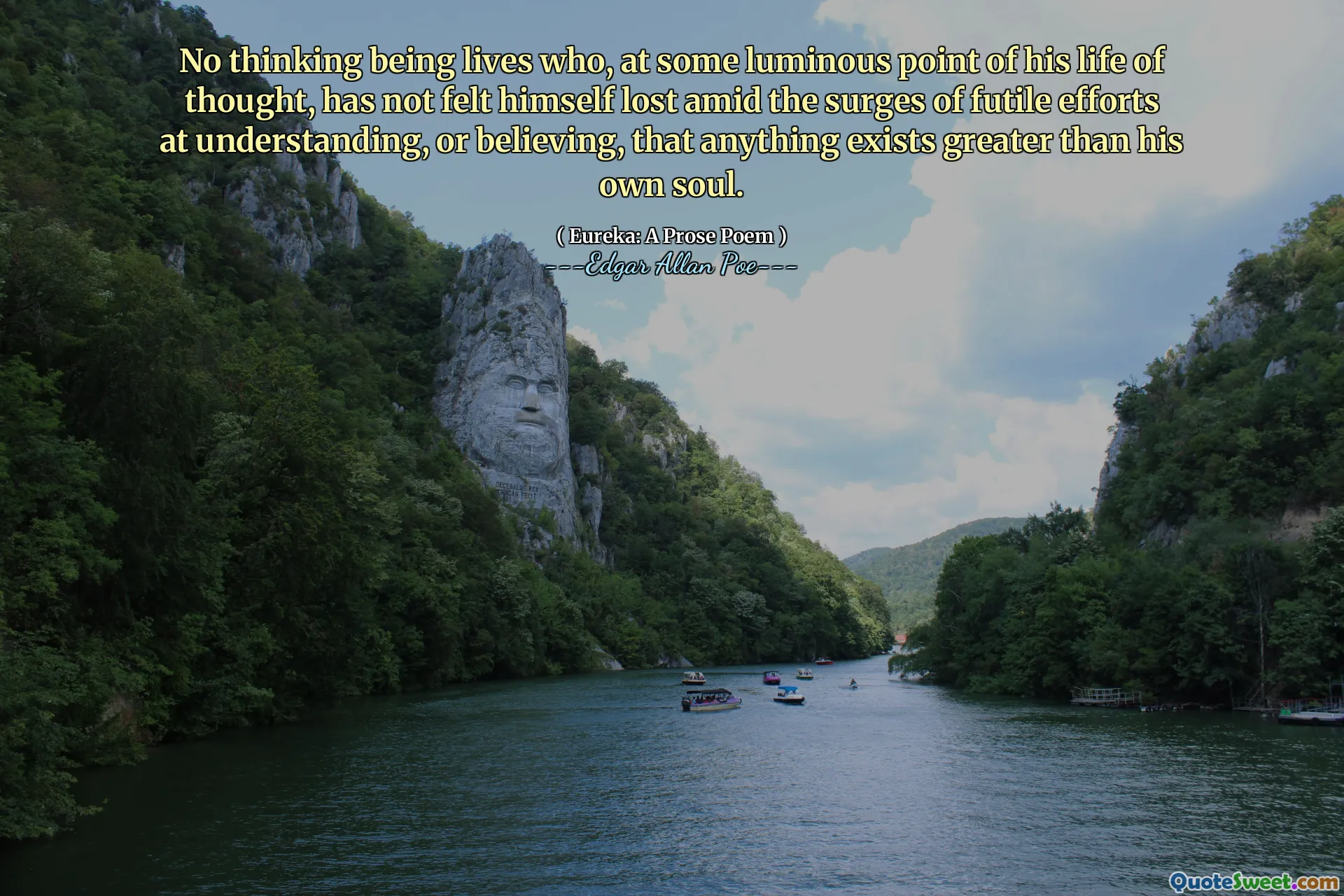
No thinking being lives who, at some luminous point of his life of thought, has not felt himself lost amid the surges of futile efforts at understanding, or believing, that anything exists greater than his own soul.
In Edgar Allan Poe's "Eureka: A Prose Poem," the author reflects on the existential journey of conscious beings. He suggests that every thoughtful individual experiences moments of confusion and a sense of being overwhelmed when grappling with the complexities of existence. This struggle often leads to the realization that one's own soul may feel like the pinnacle of existence, overshadowing any larger realities.
Poe’s exploration dives into the intimate relationship between thought and existence, emphasizing that the pursuit of understanding can be fraught with difficulty. At some point, the search for meaning may leave individuals feeling adrift, as they confront the limitations of human comprehension in relation to the vastness of the universe.






